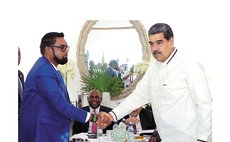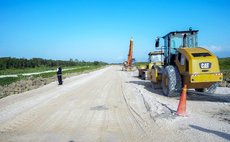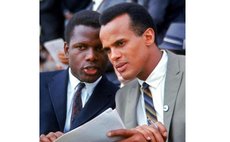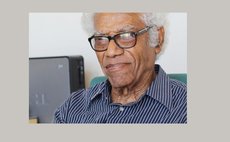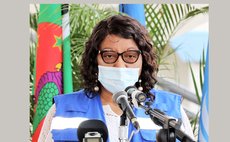Zimbabwe's Mugabe blasts gays, Europe, opposition at independence gala
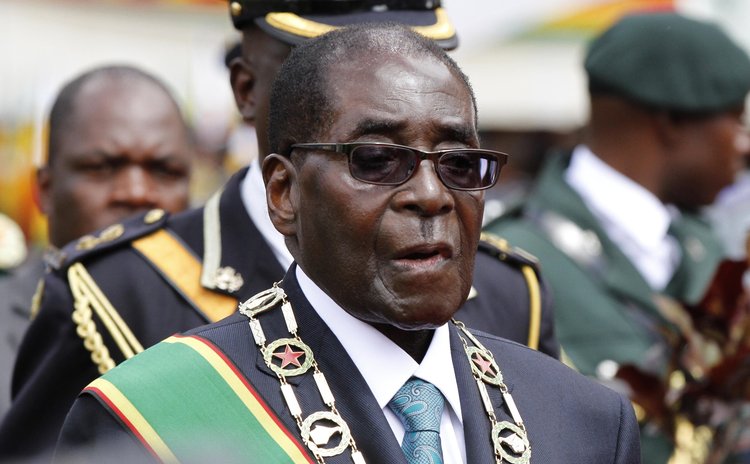
HARARE, April 18 (Xinhua/ Sun) -- Zimbabwean President Robert Mugabe on Friday lashed out at gay rights activists, hostile European countries, and a defiant opposition as the country celebrated independence for Britain in 1980.
Mugabe, a revolutionary-turned-administrator who is in his 90s, delivered the hour-long speech to tens of thousands of supporters who showed up at the sprawling 65,000-seat National Sports Stadium at the capital Harare's west suburbs.
As in the past, the Zimbabwean leader did not least try to hide his disgust of the enemies.
He hit out at European countries that did not recognize the landslide victories he and his Zanu-PF's scored at last year's presidential and parliamentary polls.
"Europe is full of lies. Europe of yesterday is gone and that Europe of today has no principles," said Mugabe, who and his wife remain on the EU's sanction list since 2002. "Europe will never ever accept a Zanu-PF government in this country."
He also accused the West of promoting gay rights in Africa and in particular cutting short aid to Uganda over the country's passage of an anti-gay law.
"Let Europe keep their homosexual nonsense there and live with it. We will never have it here. The act (homosexuality) is not humane," Mugabe said. "Any diplomat who talks about homosexuality (in Zimbabwe) will be kicked out. There is no excuse and we won't listen to them."
He warned the local gay rights group, Gays and Lesbians of Zimbabwe, of recruiting followers from the country's colleges and universities, calling the legally-registered group a "secret organization" that he was not aware of until recently.
On opposition, Mugabe said his government will not sit and watch while opposition members, with the backing of some nongovernmental organizations, try to destabilize the country.
The warning came as the main opposition party MDC-T, which has its stronghold in trade unions, threatened to stage nationwide demonstrations this week against the government for failing to create jobs.
The MDC-T's national youth assembly spokesperson Clifford Hlatywayo was quoted in the media as saying that the party's youths were prepared to take to the streets to display their anger.
"But I want to say we shall never tolerate acts of violence. If people go out to create violence because they are being instigated, I will unleash the security forces to deal with you," Mugabe said. "The security forces are my weapon."
He also castigated violence in the opposition party which has lately been riddled with internal fighting which is threatening to tear the party apart.
Morgan Tsvangirai, who heads the MDC-T, was considered the most potent challenger to Mugabe. But his loss at three straight presidential elections since 2002 has damaged the opposition's morale and triggered an internal struggle for power in the party. Senior party members accused of suspected rebellion were expelled.
But after in power for 34 years, the ruling Zanu-PF is grappling with an under-performing economy, liquidity challenges and a generally unhappy populace which does not know what the future holds.
Finance Minister Patrick Chinamasa said the economy is projected to grow by more than 6 percent, but questions are being asked whether the target is too ambitious, as the economy only expanded 3.4 percent in 2013.
Unemployment is rising as business activities subdue. A survey by the Zimbabwe Congress of Trade Unions shows that at least 9,617 job losses and 75 company closures were recorded in 2013 alone.
Mugabe on Friday admitted that the economy, especially the manufacturing sector, is facing serious challenges, with the prime concern being lack of liquidity, or no enough money in circulation.
Zimbabweans have been using mainly the American greenback as currency after the 2008 hyperinflation crashed the local currency the Zimbabwean Dollar. But a staggering trade deficit, coupled with limited fiscal space and cautious foreign investment, quickly siphoned out liquidity in the market.
Mugabe said his government was trying its best to mobilize financial resources to boost industrial production, improve energy production and revamp the rail transport system.
The government, he said, was also re-organizing the mining sector, which has sustained the country's robust growth from 2009 to 2012. Zimbabwe holds the world's second largest known reserves of chrome and platinum, and sufficient diamond, nickel, gold, and iron ore.
There are currently seven companies mining diamonds in partnership with the Zimbabwe government in the diamond-rich Marange area. The president has previously stated that the government will streamline the diamond sector to ensure only one or two companies remain.
"We are trying to get all these sub-sectors to be well organized, to be much more transparent and much more under the control of government than they have been before," Mugabe said.
On the controversial indigenization policy, which some analysts say has scared away foreign investors, the president reiterated that only companies operating in the resource sectors like mining, agriculture and manufacturing were required to cede 51 percent shareholding to local black Zimbabweans, while those in non- resource sectors were allowed a lesser share threshold.
He also said all mining companies were required to contribute to a community share ownership scheme established to finance development programs in communities where the environment was damaged by the mining activities.
The president said this after some diamond mining firms in Marange were refusing to make contributions to the trusts for various reasons ranging from not being aware of the trusts and fear of abuse of the funds.
"No mine is exempted because every mine geographically damages areas they operate from. So there has to be these community share ownership schemes in all mining areas," he said. Enditem
